Key Takeaways
- Leverage the booming IT industry in the Philippines to find top-notch IT developers for your organization in 2023.
- Create a comprehensive hiring strategy that includes defining your requirements, evaluating candidates, and understanding cultural and work environment factors.
- Foster a positive work environment, offer career development opportunities, and provide competitive compensation to attract and retain talented IT developers in the Philippines.
In the ever-evolving digital landscape of 2023, businesses worldwide are in a relentless pursuit of skilled IT developers to propel their ventures to new heights.
Amidst this global quest, the Philippines has emerged as a shining beacon, harboring a pool of exceptional IT talent.
If you’re on a mission to recruit top-notch developers from the enchanting archipelago, you’ve arrived at the right place.
This comprehensive guide will equip you with the knowledge and strategies needed to navigate the hiring process and secure the best IT developers the Philippines has to offer.
The IT industry in the Philippines has witnessed tremendous growth, establishing itself as a force to be reckoned with.
Understanding the dynamics of this thriving landscape is crucial to your recruitment journey.
From the bustling streets of Metro Manila to the emerging tech hubs across the islands, the Philippines is home to a vibrant ecosystem of innovation.
By gaining insights into the industry’s trends, technologies, and programming languages in demand, you’ll be well-equipped to attract top talent that aligns with your organization’s needs.
But what makes the Philippines a prime destination for IT recruitment?
Beyond its breathtaking natural beauty, the country boasts a rich talent pool with a unique combination of technical expertise, adaptability, and cultural affinity.
Filipino IT developers have garnered a reputation for their strong work ethic, dedication, and English proficiency, making them an ideal fit for global teams.
By tapping into this remarkable talent pool, you gain a competitive advantage, fueling your business growth and digital transformation.
Now, let’s embark on your quest to summon the finest IT developers from the Philippine islands.
The first step on this adventure is defining your hiring needs and requirements.
Assessing your project scope, technical skill set requirements, and experience level will provide clarity when identifying the ideal candidates.
This crucial groundwork will ensure that you find IT developers who possess the specific competencies and expertise needed to thrive in your organization.
Once you’ve established your requirements, it’s time to set sail in search of these exceptional IT developers.
The Philippines offers various avenues for talent acquisition.
Online job portals and platforms provide access to a vast pool of candidates, allowing you to efficiently filter through profiles and connect with potential hires.
Engaging with local IT communities, attending tech conferences, and leveraging professional networks enable you to tap into the hidden gems within the Filipino tech landscape.
Additionally, partnering with reputable recruitment agencies specializing in IT hiring can simplify the process by leveraging their expertise and network to identify qualified candidates.
In today’s interconnected world, outsourcing has become a viable option for businesses seeking offshore development teams.
The Philippines is renowned for its thriving outsourcing industry, offering access to cost-effective and highly skilled IT professionals.
Exploring this avenue can provide scalability, flexibility, and a diverse talent pool to cater to your specific project requirements.
As you embark on your recruitment journey, evaluating and selecting the right candidates is of paramount importance.
Reviewing resumes, portfolios, and conducting technical interviews will allow you to assess candidates’ qualifications, experience, and problem-solving abilities.
By implementing thorough evaluation techniques, you can identify the IT developers who not only possess the requisite technical skills but also exhibit effective communication, teamwork, and problem-solving capabilities.
Navigating cultural and work environment factors is essential to ensure a harmonious integration between your organization and the Filipino IT developers you hire.
Understanding the Filipino work culture, values, and communication styles will foster a collaborative and productive environment.
Moreover, addressing time zone differences and implementing effective remote collaboration tools will bridge the geographical gap and enable seamless communication and coordination.
In the realm of hiring IT developers, legal and contractual considerations must not be overlooked.
Familiarizing yourself with employment laws and regulations in the Philippines will ensure compliance and mitigate any potential legal risks.
Crafting comprehensive employment contracts that address intellectual property rights, confidentiality agreements, and other pertinent clauses is crucial to protect your business interests and maintain a fair and transparent working relationship.
Once your chosen IT developers have joined your team, the journey continues with onboarding and integration. Developing a well-structured onboarding process will facilitate a smooth transition and foster a sense of belonging among new hires.
Clearly defining roles, responsibilities, and expectations, along with providing necessary training and mentorship opportunities, will empower your new recruits to contribute effectively from the outset.
Managing and retaining IT developers in a competitive landscape requires concerted efforts.
Building a positive work culture, offering competitive compensation and benefits packages, providing opportunities for career growth and professional development, and implementing effective performance management systems will ensure the long-term success and satisfaction of your IT team.
The Philippines offers a treasure trove of exceptional IT developers waiting to embark on transformative journeys with your organization.
By leveraging the insights and strategies outlined in this comprehensive guide, you possess the tools to navigate the hiring process with confidence and precision.
So, sharpen your swords of recruitment and embark on a legendary adventure to secure the finest IT developers the Philippines has to offer in 2023.
Before we venture further into this article, we like to share who we are and what we do.
About 9cv9
9cv9 is a business tech startup based in Singapore and the Philippines, with a strong presence all over the world.
With over six years of startup and business experience, and being highly involved in connecting with thousands of companies and startups, the 9cv9 team has listed some important learning points in this overview of the guide of how to hire the best IT developers in the Philippines.
If your company needs recruitment and headhunting services to hire top-quality IT developers, you can use 9cv9 headhunting and recruitment services to hire top talents and candidates. Find out more here, or send over an email to [email protected].
Or just post 1 free job posting here at 9cv9 Hiring Portal in under 10 minutes.
How to Hire an IT Developer in the Philippines in 2023
- Understanding the IT Industry in the Philippines
- Defining Your Hiring Needs and Requirements
- Finding the Right IT Developers
- Evaluating and Selecting Candidates
- Understanding Cultural and Work Environment Factors
- Navigating Legal and Contractual Considerations
- Onboarding and Integration
- Managing and Retaining IT Developers
1. Understanding the IT Industry in the Philippines
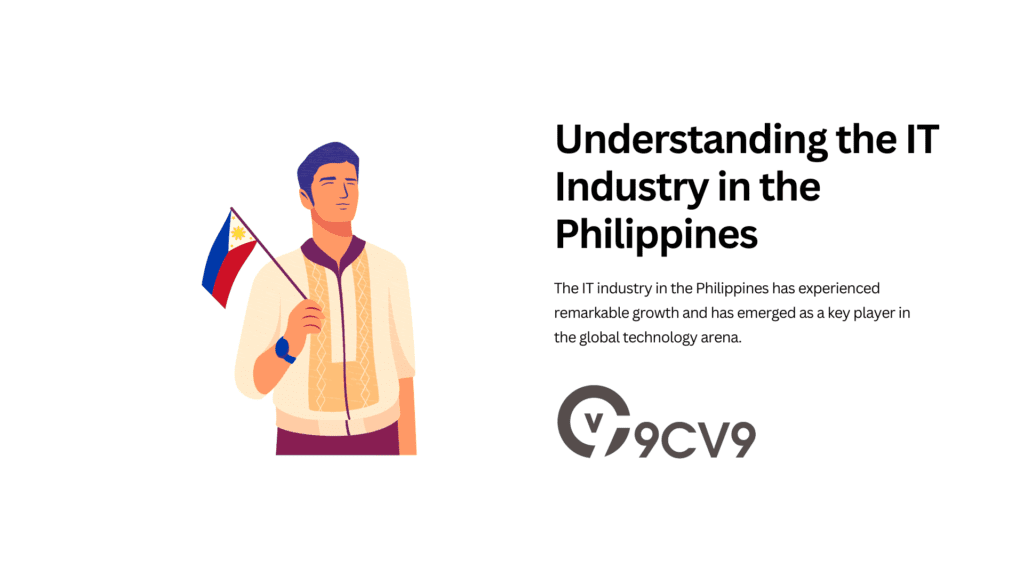
The IT industry in the Philippines has experienced remarkable growth and has emerged as a key player in the global technology arena.
To effectively hire IT developers in the country, it is essential to grasp the dynamics and trends within this flourishing industry.
In this section, we will delve into the fascinating realm of the IT industry in the Philippines, exploring its growth, significance, and the technologies driving its success.
The Growth of the IT Industry in the Philippines
The IT industry in the Philippines has been steadily expanding over the years, fueled by a talented workforce, government support, and a conducive business environment.
The country has positioned itself as a preferred outsourcing destination, attracting businesses from around the world.
The growth of the IT industry in the Philippines can be attributed to several factors.
Firstly, the country boasts a vast pool of highly skilled IT professionals with strong technical expertise.
The Philippines has a well-developed education system that produces a steady stream of IT graduates, equipping them with the knowledge and skills required in the digital age.
Furthermore, the Philippine government has been proactive in promoting the IT sector. It has implemented policies and initiatives to attract foreign investments, encourage entrepreneurship, and provide incentives for IT companies.
This supportive environment has contributed to the growth and success of the IT industry in the country.
Key Technologies and Programming Languages in Demand
The IT landscape in the Philippines is vibrant and diverse, encompassing a wide range of technologies and programming languages. Staying abreast of the latest trends and in-demand skills will help you identify the right IT developers for your organization.
Here are some key technologies and programming languages that are currently in high demand:
- Web Development: Web development skills, such as HTML, CSS, JavaScript, and popular frameworks like React and Angular, are highly sought after. With the rise of e-commerce and digital platforms, web developers play a crucial role in creating engaging user experiences.
- Mobile App Development: As the usage of smartphones continues to soar, mobile app development remains a thriving field. Developers proficient in iOS (Swift) and Android (Java/Kotlin) app development are in high demand.
- Data Science and Analytics: With the increasing emphasis on data-driven decision-making, skills in data science, machine learning, and data analytics are highly valuable. Programming languages like Python and R, along with frameworks like TensorFlow and PyTorch, are essential in this domain.
- Cloud Computing: The adoption of cloud technologies is on the rise, making cloud computing skills increasingly important. Familiarity with platforms such as Amazon Web Services (AWS), Microsoft Azure, and Google Cloud Platform (GCP) is highly desirable.
- Cybersecurity: With the proliferation of cyber threats, the need for cybersecurity professionals has grown significantly. Skills in network security, ethical hacking, and secure coding practices are crucial to safeguarding digital assets.
These are just a few examples of the technologies and programming languages that are currently in demand in the Philippine IT industry.
It’s important to assess your specific project requirements and determine which skills align with your organization’s needs.
Benefits of Hiring IT Developers from the Philippines
Hiring IT developers from the Philippines offers numerous advantages for businesses seeking skilled professionals. Here are some key benefits of tapping into the Filipino IT talent pool:
- Cost-effectiveness: Compared to developers from other countries, IT professionals in the Philippines offer competitive rates while maintaining high-quality standards. This cost-effectiveness allows businesses to optimize their budgets without compromising on talent.
- English Proficiency: English is widely spoken and understood in the Philippines, making communication seamless for international businesses. This fluency in English ensures effective collaboration, smooth project management, and clear communication between team members and stakeholders.
- Cultural Affinity: Filipino culture places a strong emphasis on hospitality, respect, and strong work ethics. IT developers from the Philippines are known for their dedication, professionalism, and willingness to go the extra mile to deliver exceptional results. This cultural affinity fosters strong working relationships and promotes a positive work environment.
- Time Zone Advantage: The Philippines is well-positioned to work with businesses across different time zones, particularly those in North America, Europe, and Australia. This advantage allows for overlapping working hours and efficient communication, enabling seamless collaboration between teams.
- Flexibility and Adaptability: Filipino IT developers are known for their adaptability to new technologies, frameworks, and projects. They possess a strong desire to continuously learn and upgrade their skills, ensuring they stay relevant in an ever-evolving tech landscape.
By harnessing the benefits of hiring IT developers from the Philippines, businesses can access a talented pool of professionals who offer cost-effective solutions, seamless communication, and a strong work ethic.
The IT industry in the Philippines has experienced remarkable growth, establishing itself as a global hub for IT services and talent.
Understanding the growth factors, key technologies, and benefits of hiring IT developers from the Philippines will empower businesses to make informed decisions and successfully navigate the recruitment process.
With this knowledge, you’ll be well-prepared to tap into the rich IT talent pool that the Philippines has to offer in 2023.
2. Defining Your Hiring Needs and Requirements

Before embarking on the quest to hire an IT developer in the Philippines, it is crucial to clearly define your hiring needs and requirements.
This initial step lays the foundation for a successful recruitment process and ensures that you attract candidates who possess the skills and expertise necessary to fulfill your organization’s objectives.
In this section, we will explore the key considerations and strategies to help you define your hiring needs and requirements effectively.
Project Scope and Objectives
To begin, it is essential to have a thorough understanding of your project’s scope and objectives.
Determine the specific IT development needs that your organization requires to achieve its goals.
Consider factors such as the nature of the project, its complexity, the expected timeline, and the technologies involved.
This clarity will help you identify the specific skill sets and experience levels required from an IT developer.
Technical Skill Set Requirements
Next, identify the technical skills and competencies that are essential for your project’s success.
Consider the programming languages, frameworks, databases, and tools that your project relies on.
Do you need developers proficient in specific languages like Python, Java, C#, or PHP?
Are there any particular frameworks like React, Angular, or Laravel that your project requires?
Assessing these technical skill set requirements will enable you to target candidates who possess the necessary expertise.
Experience Level
Determining the experience level you are seeking in an IT developer is crucial.
Consider whether you require junior developers who can learn and grow within your organization, mid-level developers with a solid foundation of experience, or senior developers with extensive expertise and leadership capabilities.
Aligning the experience level with your project’s complexity and requirements will help you find developers who can effectively contribute from day one.
Soft Skills and Team Fit
Beyond technical skills, evaluating the soft skills and team fit is equally important.
Assess the interpersonal skills, communication abilities, problem-solving aptitude, and teamwork capabilities of potential candidates.
Determine whether your project requires individuals who can work independently or those who thrive in collaborative team environments.
Identifying the right balance of technical proficiency and soft skills will contribute to a harmonious and productive work environment.
Cultural Alignment
Consider the cultural alignment between your organization and the prospective IT developer.
Assess whether the developer’s values, work ethic, and communication style align with your company culture.
This alignment is particularly significant when hiring IT developers from the Philippines, as understanding and appreciating the local work culture can foster stronger working relationships and ensure a smooth integration into your team.
Scalability and Growth Potential
While hiring for your immediate project needs, it is also beneficial to consider the scalability and growth potential of the IT developer.
Assess whether the candidate possesses a thirst for continuous learning, a willingness to adapt to emerging technologies, and the potential to take on additional responsibilities in the future.
This forward-thinking approach will ensure that your hire aligns with your long-term organizational objectives and can contribute to the sustained growth of your IT team.
Budget Considerations
Consider your budgetary constraints when defining your hiring needs and requirements.
Evaluate the financial resources available for the recruitment process, including salary, benefits, and any relocation or remote work arrangements.
Balancing your hiring needs with your budgetary constraints will help you attract candidates who fit within your financial parameters without compromising on quality and expertise.
Defining your hiring needs and requirements is a crucial first step in the recruitment process.
By clearly outlining the project scope, technical skill set requirements, experience level, soft skills, cultural alignment, scalability, and budget considerations, you lay a solid foundation for attracting the right IT developer for your organization.
With a well-defined roadmap in place, you are now ready to embark on the next phase of your recruitment journey in the enchanted isles of the Philippines.
3. Finding the Right IT Developers in the Philippines
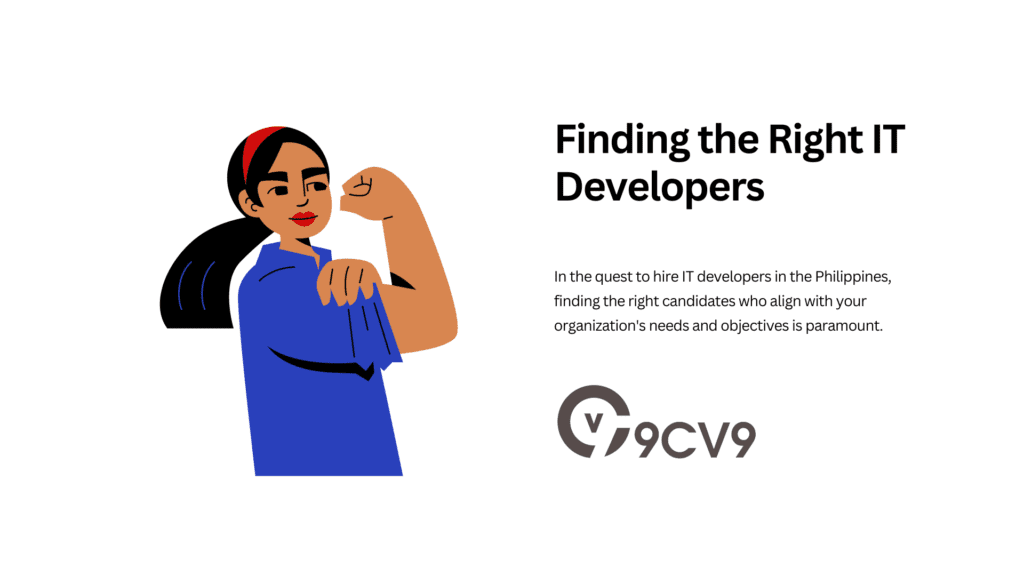
In the quest to hire IT developers in the Philippines, finding the right candidates who align with your organization’s needs and objectives is paramount.
The search for skilled and qualified IT professionals requires a strategic approach and an understanding of the various avenues available for talent acquisition.
In this section, we will explore effective strategies and channels to help you find the right IT developers in the Philippines.
Online Job Portals and Platforms
Online job portals and platforms are a popular and convenient avenue for finding IT developers in the Philippines.
These platforms allow you to post job listings, review resumes, and connect with potential candidates.
Popular job portals in the Philippines include 9cv9 Philippines, Jobstreet, LinkedIn, and Indeed.
When posting your job listing, make sure to provide detailed information about your requirements, project scope, and company culture to attract relevant candidates.
Also, read: The top 10 free job postings websites in the Philippines
Local IT Communities and Events
Engaging with local IT communities and attending tech events and conferences in the Philippines can be an effective way to connect with talented IT professionals.
These communities and events provide opportunities to network, gain insights into the local IT landscape, and identify potential candidates.
Platforms like Meetup and TechMeetups offer information about tech-related events happening in different cities across the Philippines.
Engaging in these communities and events allows you to tap into the hidden gems within the Filipino tech ecosystem.
Professional Networks and Referrals
Leveraging your professional networks and seeking referrals can yield excellent results when searching for IT developers.
Reach out to colleagues, industry contacts, and employees within your organization to inquire about potential candidates or ask for recommendations.
Referrals from trusted sources often result in finding candidates who possess the required skills and are a good cultural fit for your organization.
Or, simply just use Jobsrefer’s powerful decentralized professional network feature to get in touch with over 15,000+ freelance referrers to refer over some strong IT developers in the Philippines.
University and College Job Fairs
Universities and colleges in the Philippines host job fairs that attract graduating students and fresh IT graduates seeking employment opportunities.
Participating in these job fairs provides direct access to a pool of young talent who are eager to kick-start their careers.
Contact the career services departments of universities and colleges in the Philippines to inquire about upcoming job fairs and explore the possibility of participating as a recruiting organization.
Recruitment Agencies and Headhunters
Collaborating with reputable recruitment agencies and headhunters specializing in IT hiring can streamline the process of finding the right IT developers.
These agencies have extensive networks and expertise in sourcing, screening, and shortlisting candidates.
They can save you time and effort by presenting you with a curated list of qualified candidates who align with your requirements.
When partnering with a recruitment agency, clearly communicate your hiring needs and expectations to ensure they can effectively identify the right candidates for your organization.
That’s why 4,500+ companies highly recommend 9cv9 Headhunting and Recruitment Agency, which specializes in finding IT developers in the Philippines.
Outsourcing Companies
The Philippines is renowned for its thriving outsourcing industry, offering access to cost-effective and highly skilled IT professionals.
Outsourcing companies provide a wide range of IT services and have a pool of experienced developers who are well-versed in various technologies and programming languages.
Collaborating with an outsourcing company can be a viable option if you’re seeking to build a dedicated offshore development team or extend your existing team’s capabilities.
Social Media and Online Communities
Social media platforms and online communities can be valuable resources for finding IT developers in the Philippines.
Platforms like Facebook, TikTok, Twitter, and Reddit have active communities focused on technology, programming, and IT careers.
Joining relevant groups, participating in discussions, and sharing job postings can help you connect with potential candidates who are actively engaged in these communities.
Industry-Specific Online Platforms
Consider industry-specific online platforms that cater to IT professionals and employers.
Platforms like 9cv9 Philippines, GitHub, Stack Overflow, and Behance are popular among developers and designers, showcasing their skills and projects.
Exploring these platforms allows you to identify IT developers with a strong online presence, view their portfolios, and assess their technical expertise.
Remember, when searching for IT developers in the Philippines, it is crucial to effectively communicate your organization’s values, project requirements, and growth opportunities.
Emphasize the benefits and unique aspects of working with your organization to attract top talent.
Additionally, clearly outline the application process and expectations to ensure a smooth and efficient recruitment process.
Finding the right IT developers in the Philippines requires a multi-faceted approach that encompasses online job portals, local IT communities, professional networks, university job fairs, recruitment agencies, outsourcing companies, social media platforms, and industry-specific online platforms.
By employing a comprehensive strategy and leveraging the available channels, you can effectively identify and connect with skilled IT professionals who will contribute to the success of your organization.
Let the search begin for the IT wizards who will help you weave magic with their coding prowess in the enchanting islands of the Philippines.
4. Evaluating and Selecting Candidates
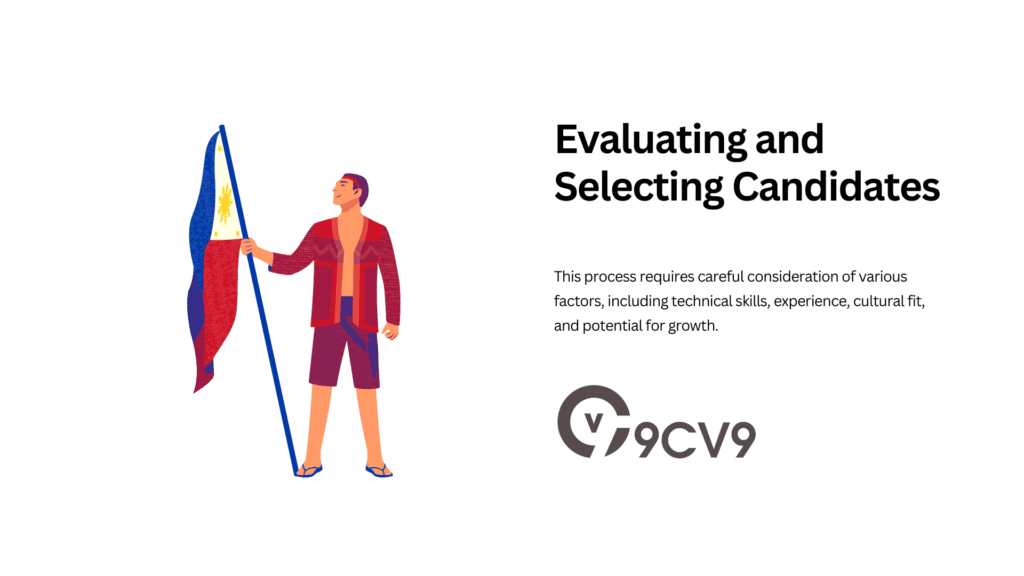
Once you have attracted a pool of potential IT developer candidates for your organization, the next crucial step is to evaluate and select the most suitable individuals.
This process requires careful consideration of various factors, including technical skills, experience, cultural fit, and potential for growth.
In this section, we will explore effective strategies and considerations for evaluating and selecting IT developer candidates in the Philippines.
Reviewing Resumes and Application Materials
The first step in evaluating candidates is to thoroughly review their resumes and application materials.
Look for relevant experience, technical skills, and educational background that align with your job requirements.
Pay attention to any notable projects, certifications, or achievements that demonstrate their expertise and commitment to professional growth.
Assessing their application materials allows you to shortlist candidates who have the potential to meet your organization’s needs.
Technical Skills Assessment
Assessing candidates’ technical skills is crucial to ensure they possess the necessary proficiency for the role.
Consider conducting technical assessments, coding challenges, or online tests to evaluate their abilities.
This can be done through platforms like HackerRank or by creating customized assessments that reflect the specific skills and technologies required for your project.
Evaluating technical skills will help you gauge candidates’ problem-solving abilities, attention to detail, and their ability to work with relevant programming languages, frameworks, and tools.
Conducting Interviews
Interviews are a valuable opportunity to assess candidates’ suitability for your organization.
Prepare a list of interview questions that cover both technical and behavioral aspects.
Technical questions can help you assess candidates’ depth of knowledge and ability to apply their skills to real-world scenarios.
Behavioral questions can give insights into their communication skills, problem-solving approach, and their ability to work collaboratively.
Consider using a combination of phone interviews, video interviews, and in-person interviews to assess candidates thoroughly.
Technical Skills Demonstration
In addition to interviews, consider providing candidates with an opportunity to demonstrate their technical skills through practical exercises or coding challenges.
This can be done through take-home assignments or onsite coding exercises.
Observing candidates’ problem-solving techniques, code structure, and attention to detail will help you evaluate their practical abilities and assess how well they can apply their technical knowledge in real-world scenarios.
Assessing Cultural Fit
Assessing cultural fit is essential to ensure candidates align with your organization’s values, work environment, and team dynamics.
Consider including behavioral and situational questions that allow candidates to showcase their alignment with your company culture.
Additionally, involve relevant team members or stakeholders in the interview process to gather different perspectives and assess the candidate’s compatibility with the existing team.
Reference and Background Checks
Before making a final decision, conduct reference and background checks to validate the information provided by the candidates.
Reach out to their previous employers, colleagues, or professors to gain insights into their work ethic, reliability, and overall performance.
This step helps verify the candidate’s qualifications, experience, and character, providing you with a more comprehensive understanding of their suitability for the role.
Or, you can ask the 9cv9 Recruitment Team for their proprietary reference checking questions to reduce your risks of a bad hire.
Assessing Growth Potential
Consider the growth potential of the candidates when making your selection.
Evaluate their willingness to learn, adaptability to new technologies, and their potential to take on additional responsibilities in the future.
Hiring candidates who demonstrate a growth mindset and a passion for continuous learning can contribute to the long-term success and development of your IT team.
Collaboration and Team Interaction
If feasible, organize team-based activities or assessments that allow candidates to collaborate and interact with your existing team members.
This provides an opportunity to assess how well candidates work in a team setting, communicate their ideas, and contribute to collective problem-solving efforts.
Evaluating their collaboration skills can help ensure a harmonious integration into your organization.
Decision-Making and Onboarding
After carefully evaluating candidates based on the aforementioned criteria, make an informed decision regarding the most suitable IT developer for your organization.
Notify the selected candidate and extend a formal offer, including details of the compensation package, benefits, and any other pertinent information.
Once the candidate accepts the offer, initiate the onboarding process to ensure a smooth transition and integration into your organization.
Evaluating and selecting IT developer candidates in the Philippines requires a comprehensive assessment of their technical skills, experience, cultural fit, growth potential, collaboration abilities, and more.
By employing a structured evaluation process, including resume review, technical skills assessment, interviews, cultural fit assessment, reference checks, and collaboration activities, you can identify and select the ideal candidates who will contribute to the success of your organization.
With a diligent and thoughtful selection process, you can confidently welcome the chosen IT developers into your team, ready to embark on exciting tech projects together.
5. Understanding Cultural and Work Environment Factors
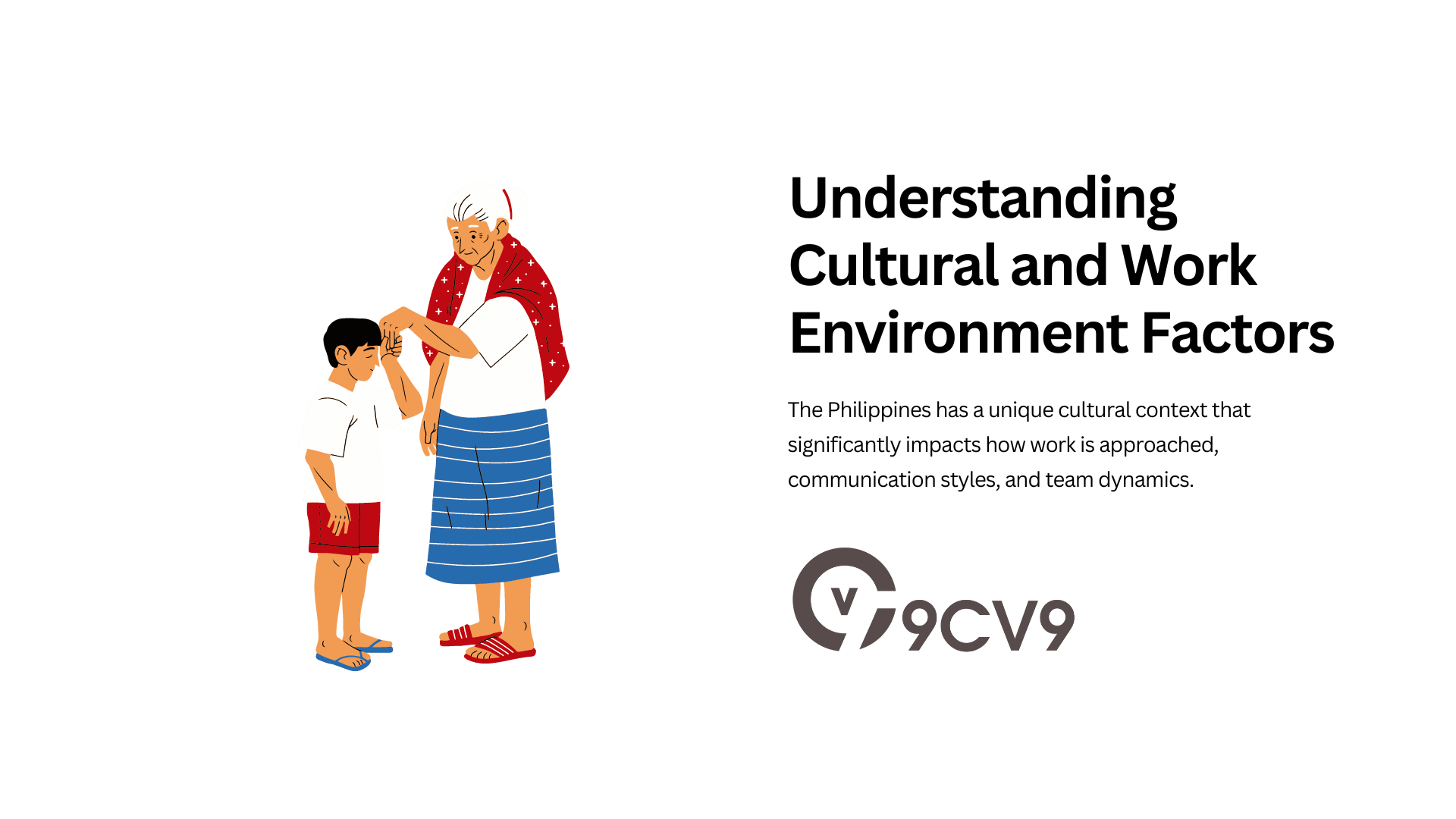
When hiring IT developers in the Philippines, it is crucial to understand the cultural and work environment factors that influence the professional landscape.
The Philippines has a unique cultural context that significantly impacts how work is approached, communication styles, and team dynamics.
By familiarizing yourself with these factors, you can create an inclusive and productive work environment that fosters collaboration and success.
In this section, we will explore the cultural and work environment factors in the Philippines that you should consider when hiring IT developers.
Filipino Work Culture
Filipino work culture is characterized by strong values such as respect, hospitality, and a sense of community.
These values influence how IT developers in the Philippines approach their work and interact with their colleagues.
Understanding and appreciating these cultural norms will help you build positive relationships with your Filipino team members and create a harmonious work environment.
To learn more about the culture of working with Filipinos, hop over to our most famous article “10 Characteristics of Workplace Culture in Southeast Asia You Need to Know”.
Indirect Communication Style
Filipinos tend to have an indirect communication style, emphasizing politeness and avoiding confrontation or direct criticism.
This cultural trait is important to consider when providing feedback or discussing work-related matters.
Encouraging open and transparent communication while respecting cultural nuances will help foster effective collaboration and build trust with your IT developers.
Hierarchy and Respect for Authority
Hierarchy and respect for authority are prominent in Filipino work culture.
It is common for employees to show deference to their superiors and follow established protocols.
This hierarchical structure may affect decision-making processes and team dynamics.
As a leader, it is essential to strike a balance between respecting the cultural norms while promoting a collaborative and open work environment that encourages diverse perspectives and contributions.
Team-oriented Approach
Filipinos value teamwork and collaboration, often prioritizing the collective success over individual achievements.
This team-oriented approach can be leveraged to foster a supportive and cooperative work environment.
Encouraging teamwork, promoting cross-functional collaboration, and recognizing collective achievements can enhance employee engagement and productivity among your IT developers.
Strong Work Ethic
Filipino IT developers are known for their strong work ethic and dedication.
They are often willing to go the extra mile to deliver quality work and meet project deadlines.
Recognizing and appreciating their hard work and commitment can help motivate and retain your IT team.
Providing opportunities for growth, career development, and recognizing outstanding performance can further reinforce their work ethic.
Sense of Community and Family
Filipinos have a strong sense of community and place significant importance on family.
This familial bond often extends to the workplace, where colleagues develop close-knit relationships and support one another.
Creating a sense of belonging, organizing team-building activities, and fostering a supportive work environment can help nurture this sense of community within your IT team.
Flexibility and Adaptability
Filipino IT developers are known for their adaptability to new technologies, frameworks, and projects.
They are quick learners and are often willing to embrace new challenges.
Providing opportunities for professional development, training, and exposure to new technologies can further enhance their flexibility and adaptability, enabling them to contribute effectively to your organization’s growth.
Work-Life Balance
Work-life balance is important to Filipino IT developers, who prioritize personal and family time.
Encouraging a healthy work-life balance by promoting flexible working hours, providing remote work options when possible, and respecting personal boundaries can contribute to employee satisfaction and overall well-being.
Recognition and Appreciation
Filipinos appreciate recognition and appreciation for their efforts.
Acknowledging the accomplishments and contributions of your IT developers can boost morale, motivation, and job satisfaction.
Implementing a culture of recognition, such as regular feedback sessions, rewards programs, or employee appreciation events, can cultivate a positive and fulfilling work environment.
By understanding and adapting to the cultural and work environment factors in the Philippines, you can build a strong and cohesive IT team that thrives in a supportive and inclusive atmosphere.
Embrace the cultural diversity and leverage the unique strengths of your Filipino IT developers to drive innovation, collaboration, and success in your organization.
Or if hiring IT developers in the Philippines is not your cup of tea, then hop over to our much-acclaimed article and guide on why we recommend Vietnamese Developers as the top group of developers to hire in the world.
6. Navigating Legal and Contractual Considerations
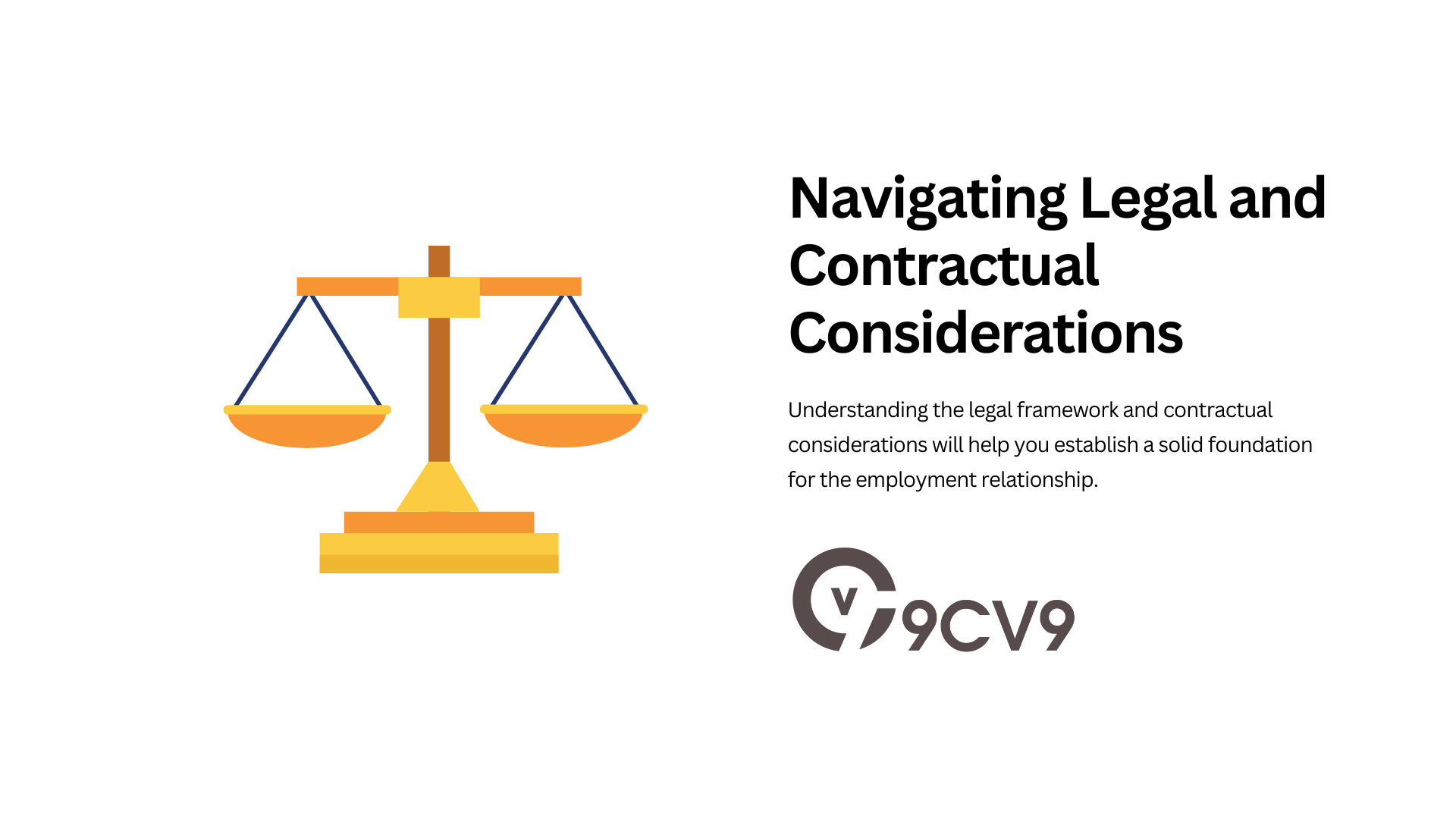
When hiring IT developers in the Philippines, it is essential to navigate the legal and contractual aspects of the hiring process to ensure compliance with local laws and protect the rights and interests of both your organization and the hired professionals.
Understanding the legal framework and contractual considerations will help you establish a solid foundation for the employment relationship.
In this section, we will explore key legal and contractual considerations to keep in mind when hiring IT developers in the Philippines.
Employment Laws and Regulations
Familiarize yourself with the employment laws and regulations in the Philippines to ensure compliance with the legal requirements.
The Labor Code of the Philippines governs various aspects of employment, including working hours, wages, benefits, leaves, termination, and labor standards.
It is crucial to understand the rights and obligations of both employers and employees to create fair and lawful employment agreements.
Employment Contracts
Employment contracts serve as a legally binding agreement between the employer and the employee.
When hiring IT developers in the Philippines, it is important to draft clear and comprehensive employment contracts that outline the terms and conditions of employment, including job responsibilities, working hours, compensation, benefits, leaves, confidentiality clauses, intellectual property rights, and termination provisions.
Seek legal counsel or consult with an HR professional familiar with Philippine employment laws to ensure your contracts comply with the legal requirements and protect your organization’s interests.
Intellectual Property Rights
Addressing intellectual property rights in your employment contracts is crucial, especially in the IT industry.
Clearly define ownership and usage rights of any intellectual property developed during the course of employment.
This includes software code, designs, algorithms, or any other work that is created or enhanced by the IT developer.
Specify the ownership, licensing, and confidentiality provisions to protect your organization’s intellectual property and prevent disputes in the future.
Non-Disclosure and Non-Compete Agreements
Consider including non-disclosure and non-compete agreements in your employment contracts to protect your organization’s sensitive information, trade secrets, and client relationships.
Non-disclosure agreements (NDAs) ensure that IT developers maintain confidentiality regarding proprietary information and do not disclose it to third parties.
Non-compete agreements restrict IT developers from engaging in similar work or joining a competitor for a specified period after leaving your organization.
These agreements help safeguard your organization’s competitive advantage and prevent the misuse of confidential information.
Employee Benefits and Compensation
Ensure compliance with the legal requirements regarding employee benefits and compensation.
The Philippines has minimum wage laws, mandatory benefits such as social security contributions, health insurance, and statutory leaves.
Familiarize yourself with these requirements to provide fair and competitive compensation packages for your IT developers.
Additionally, consider offering additional benefits, such as health insurance, retirement plans, flexible working arrangements, and professional development opportunities, to attract and retain top talent.
Visa and Work Permit Requirements
If you are hiring IT developers from overseas or non-Filipino residents, it is essential to understand the visa and work permit requirements.
Work permits and visas are typically obtained through the Bureau of Immigration in the Philippines.
Ensure that the hired IT developers have the necessary documentation to legally work in the country.
Engage with immigration experts or legal professionals to navigate the visa and work permit process and ensure compliance with immigration laws.
Termination and Severance
Include termination and severance provisions in your employment contracts to clarify the conditions and procedures for terminating the employment relationship.
Familiarize yourself with the legal requirements regarding termination, notice periods, and severance pay.
It is important to follow due process and comply with the legal obligations when terminating an IT developer’s employment to avoid legal disputes or potential claims.
Consult with Legal Professionals
Navigating the legal and contractual considerations when hiring IT developers in the Philippines can be complex.
It is advisable to seek legal counsel or consult with professionals experienced in Philippine employment laws to ensure compliance and mitigate any legal risks.
Legal experts can review your employment contracts, provide guidance on specific legal requirements, and assist in drafting agreements that align with the local laws and protect your organization’s interests.
By understanding and adhering to the legal and contractual considerations when hiring IT developers in the Philippines, you can establish a transparent and compliant employment relationship.
Ensure that your employment contracts are comprehensive, aligned with local laws, and protect your organization’s rights and interests.
By prioritizing legal compliance, you can mitigate potential risks and foster a positive and legally sound working environment for your IT developers.
7. Onboarding and Integration
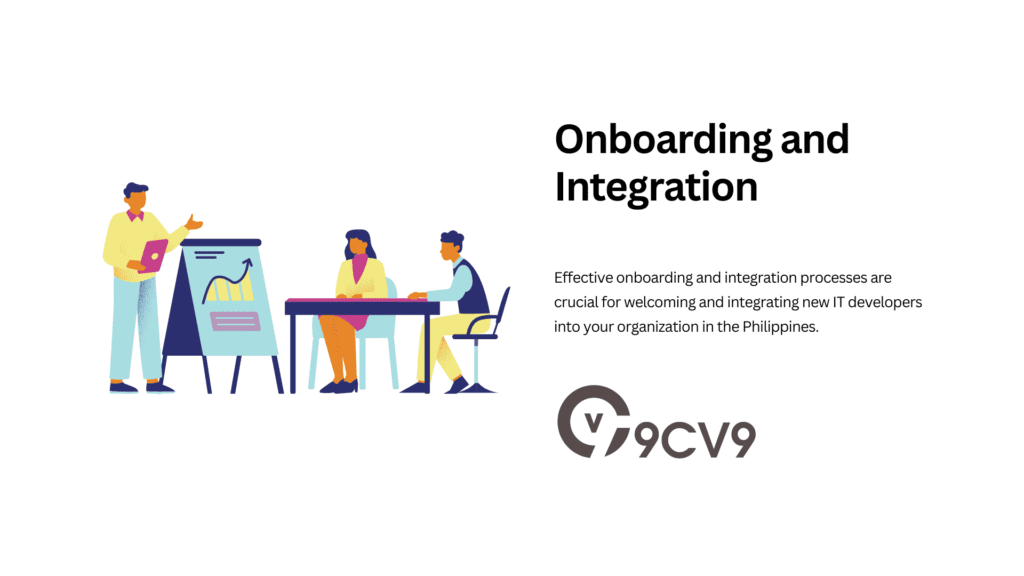
Effective onboarding and integration processes are crucial for welcoming and integrating new IT developers into your organization in the Philippines.
A well-structured onboarding program not only helps new hires become productive quickly but also sets the foundation for long-term success and job satisfaction.
In this section, we will explore key strategies and best practices for onboarding and integrating IT developers in the Philippines.
Preparing a Comprehensive Onboarding Plan
Before your new IT developers start their first day, it is essential to have a comprehensive onboarding plan in place.
This plan should outline the steps and activities that will help them acclimate to their roles, understand the company culture, and familiarize themselves with the work environment.
The onboarding plan should include orientation sessions, introductions to key team members, training programs, and resources to support their transition.
Providing a Warm Welcome
A warm and welcoming environment sets a positive tone for new IT developers.
Arrange for a personalized welcome message, a workspace prepared with necessary equipment, and a warm introduction to their team members and colleagues.
Assigning a buddy or mentor who can guide them through their initial days can help them feel supported and connected.
Orientation and Company Culture
Provide a comprehensive orientation session that introduces new IT developers to your organization’s values, mission, and culture.
This session can include presentations, videos, and interactive activities to help them understand the company’s goals, expectations, and overall work environment.
Familiarize them with the company’s policies, procedures, and any specific guidelines relevant to their roles.
Job Training and Skill Development
Offer job-specific training to ensure that new IT developers are equipped with the necessary skills and knowledge to perform their roles effectively.
This can include technical training on tools, software, and frameworks they will be working with.
Provide access to relevant documentation, tutorials, and online resources to support their continuous learning and skill development.
Team Integration and Collaboration
Facilitate team integration by encouraging interactions and collaborations between new IT developers and their team members.
Arrange team-building activities, collaborative projects, or regular team meetings to foster camaraderie and build strong working relationships.
Emphasize the importance of open communication, feedback, and support within the team.
Performance Expectations and Goal Setting
Clearly communicate performance expectations and set SMART (Specific, Measurable, Achievable, Relevant, Time-bound) goals for new IT developers.
This helps align their efforts with organizational objectives and provides a clear roadmap for success.
Regularly check in on their progress, provide constructive feedback, and recognize their achievements to keep them motivated and engaged.
Providing Ongoing Support and Mentoring
Assign a mentor or experienced team member to support and guide new IT developers during their initial period.
The mentor can provide valuable insights, answer questions, and offer guidance on technical and organizational matters.
Regularly check in with new hires to address any concerns, provide additional training if needed, and ensure they feel supported throughout their integration process.
Feedback and Performance Reviews
Conduct regular performance reviews to assess the progress and development of your IT developers.
Provide constructive feedback to help them improve their skills and address any areas that may need further attention.
Performance reviews also provide an opportunity to discuss career aspirations, growth opportunities, and potential areas for professional development.
Celebrating Milestones and Achievements
Acknowledge and celebrate milestones and achievements of your IT developers.
Recognize their contributions, whether it’s completing a project, achieving performance goals, or acquiring new skills.
Celebrations can include team lunches, certificates of appreciation, or public recognition within the organization.
Celebrating milestones fosters a positive work environment and motivates your IT developers to excel further.
Continuous Learning and Development
Encourage a culture of continuous learning and development within your organization.
Provide opportunities for IT developers to attend conferences, workshops, webinars, or pursue relevant certifications.
Investing in their professional growth not only enhances their skills but also shows your commitment to their long-term success.
By implementing a well-structured onboarding and integration process, you can ensure that your IT developers in the Philippines feel welcomed, supported, and equipped to contribute effectively to your organization.
A positive onboarding experience enhances retention, job satisfaction, and productivity, setting the stage for long-term success for both the individual and the organization.
8. Managing and Retaining IT Developers
Managing and retaining talented IT developers in the Philippines is crucial for the growth and success of your organization.
In a competitive job market, it’s essential to implement effective management strategies that not only attract top talent but also create an environment where IT developers feel valued, motivated, and engaged.
In this section, we will explore key strategies for managing and retaining IT developers in the Philippines.
Clear Communication and Expectations
Establish clear lines of communication with your IT developers to ensure that expectations and goals are effectively communicated.
Regularly meet with them to discuss project progress, provide feedback, and address any concerns or challenges they may face.
Encourage open and transparent communication, fostering an environment where IT developers feel comfortable discussing their ideas, issues, and suggestions.
Empowerment and Autonomy
Provide IT developers with the autonomy to make decisions and take ownership of their work.
Empower them to contribute ideas, offer solutions, and take initiative.
Giving them a sense of ownership not only boosts their morale and job satisfaction but also encourages innovation and creativity.
Career Development Opportunities
Invest in the career development of your IT developers by providing opportunities for growth and advancement.
Offer training programs, certifications, and workshops to enhance their technical skills.
Additionally, provide opportunities for leadership and project management roles to foster their professional growth and progression within the organization.
Also, read our top article on upskilling your IT developers here.
Competitive Compensation and Benefits
Offer competitive compensation packages to attract and retain top IT talent.
Stay updated on market trends and adjust salaries and benefits accordingly.
Provide a comprehensive benefits package that includes health insurance, retirement plans, flexible working arrangements, and other perks that align with the needs and expectations of IT professionals in the Philippines.
Work-Life Balance
Promote a healthy work-life balance for your IT developers.
Encourage flexible working hours, remote work options when feasible, and paid time off.
Respect their personal boundaries and ensure they have time to recharge and maintain a fulfilling personal life outside of work.
A proper work-life balance enhances job satisfaction and reduces burnout, ultimately leading to higher retention rates.
Recognition and Rewards
Recognize and appreciate the efforts and achievements of your IT developers.
Implement a culture of recognition by acknowledging their contributions through verbal praise, public recognition, or rewards programs.
Celebrate milestones, project successes, and individual achievements to reinforce their sense of accomplishment and value to the organization.
Create a Positive Work Environment
Foster a positive work environment that promotes collaboration, respect, and teamwork.
Encourage a culture of inclusivity and diversity, where every IT developer feels valued and supported.
Provide opportunities for team-building activities, cross-functional collaboration, and social events to foster strong relationships and a sense of belonging.
Regular Performance Reviews
Conduct regular performance reviews to provide constructive feedback and assess the progress and development of your IT developers.
Use these reviews as opportunities to set new goals, address any performance gaps, and identify areas for further improvement.
Regular feedback and coaching contribute to the professional growth of IT developers and help align their efforts with organizational objectives.
Mentorship and Professional Support
Implement mentorship programs to pair experienced professionals with junior IT developers.
Mentors can provide guidance, support, and career advice, contributing to the professional development and growth of your IT team.
Additionally, offer access to resources, tools, and training that support their continuous learning and skill enhancement.
Employee Engagement Initiatives
Implement employee engagement initiatives to create a positive and fulfilling work environment.
This can include regular team-building activities, social events, knowledge-sharing sessions, or opportunities for cross-department collaboration.
Engaged employees are more likely to be satisfied with their work, demonstrate higher levels of productivity, and remain loyal to the organization.
Stay Updated with Technology Trends
Keep up with the latest technology trends and advancements in the IT industry.
Provide opportunities for IT developers to work on cutting-edge projects and explore emerging technologies.
This not only keeps them engaged and challenged but also enhances their skillset, making them more marketable and valuable to the organization.
Exit Interviews and Feedback
When IT developers choose to leave your organization, conduct exit interviews to gain insights into their reasons for departure.
Use this feedback to identify areas for improvement, address any issues or concerns, and refine your retention strategies.
Exit interviews provide valuable information to enhance the employee experience and reduce turnover rates.
By implementing effective management strategies and creating a supportive work environment, you can retain your talented IT developers in the Philippines.
A combination of competitive compensation, opportunities for growth, recognition, work-life balance, and a positive company culture will contribute to their long-term satisfaction and loyalty.
Investing in the development and well-being of your IT team ultimately leads to increased productivity, innovation, and success for your organization.
Conclusion
You have now reached the end of our epic journey on how to hire an IT developer in the Philippines in 2023.
We’ve covered everything from understanding the IT industry landscape to navigating legal considerations, from finding the right candidates to onboarding, managing, and retaining your talented IT team.
But before we bid farewell, let’s take a moment to recap our adventure and celebrate the incredible opportunities that lie ahead.
Hiring IT developers in the Philippines is like embarking on a thrilling treasure hunt.
The country is a treasure trove of top-notch tech talent, waiting to be discovered.
With its rapidly growing IT industry, exceptional technical skills, and cultural compatibility, the Philippines has become a preferred destination for organizations seeking skilled IT professionals.
So, it’s time to don your explorer’s hat and set sail on this exciting hiring expedition!
In our quest, we embarked on a journey of understanding the IT industry in the Philippines.
We dove into the vast pool of talented professionals, explored the dynamic tech hubs, and unraveled the secrets of their success. Armed with this knowledge, you gained a deeper understanding of the local tech landscape and the immense potential that awaits.
But the adventure didn’t stop there.
We delved into the intricacies of defining your hiring needs and requirements, creating a blueprint for success.
By outlining the necessary skills, experience, and cultural fit, you honed your vision of the perfect IT developer for your organization.
With this map in hand, you were ready to set sail on the hiring seas.
With the wind in your sails, you set off on the exciting journey of finding the right IT developers.
We explored the treasure maps of recruitment strategies, from tapping into local talent pools and leveraging online platforms to working with recruitment agencies.
Armed with these tactics, you had all the tools you needed to unearth the gems of the IT industry.
But hiring is just the beginning.
We then ventured into the uncharted territory of evaluating and selecting candidates.
With our compass of interview techniques, technical assessments, and reference checks, you navigated the treacherous waters of candidate evaluation.
You identified the true gems among the sea of applicants and built a dream team of IT superheroes.
Our adventure took us to the heart of cultural and work environment factors, where we discovered the importance of embracing diversity and fostering a supportive atmosphere.
By understanding and appreciating the unique cultural nuances, you cultivated a harmonious environment that encouraged collaboration, creativity, and innovation.
Of course, no expedition would be complete without addressing the legal and contractual considerations.
We equipped you with the knowledge to navigate the legal maze, ensuring compliance with employment laws, safeguarding intellectual property, and protecting the rights of both your organization and your IT developers.
As we anchored at the shores of onboarding and integration, we witnessed the transformation of individuals into a cohesive unit.
Through comprehensive onboarding, effective communication, and a welcoming atmosphere, you set your IT developers up for success, providing them with the tools and support to thrive in their roles.
But our journey didn’t end there.
We set our sights on managing and retaining your precious IT developers.
With strategies such as clear communication, career development opportunities, and a positive work environment, you fostered a sense of belonging and loyalty, ensuring that your IT superheroes would stay by your side through thick and thin.
And now, dear adventurer, we arrive at our destination—the conclusion of our thrilling voyage.
Armed with the knowledge, strategies, and a touch of humor, you are ready to embark on your own hiring adventure in the Philippines.
Remember, finding your IT dream team is no easy feat, but with the right guidance and a sprinkle of Filipino charm, success is within your grasp.
Most companies will use 9cv9 Philippines’ most powerful recruitment service to hire IT developers quickly, and more affordably than the market average.
So, gather your crew, set sail, and let the recruitment seas carry you to the shores of success.
The Philippines, with its vibrant tech ecosystem, exceptional talent, and warm hospitality, awaits your arrival.
May your journey be filled with laughter, discovery, and an abundance of talented IT developers.
Bon voyage, intrepid explorer, and may you find your IT treasures in the beautiful Pearl of the Orient Seas.
If your company needs HR, hiring, or corporate services, you can use 9cv9 hiring and recruitment services. Book a consultation slot here, or send over an email to [email protected].
If you find this article useful, why not share it with your hiring manager and C-level suite friends and also leave a nice comment below?
We, at the 9cv9 Research Team, strive to bring the latest and most meaningful data, guides, and statistics to your doorstep.
To get access to top-quality guides, click over to 9cv9 Blog.
People Also Ask
How much does IT cost to hire a web developer in the Philippines?
The cost of hiring a web developer in the Philippines can vary depending on factors such as experience, expertise, and project requirements. On average, the hourly rates for web developers in the Philippines range from $10 to $25, offering cost-effective solutions without compromising quality.
How do I find and hire a developer?
To find and hire a developer, explore online platforms like LinkedIn, job boards, and freelancing websites. Post detailed job descriptions, screen candidates based on experience and skills, conduct interviews, and assess their portfolio. Select the best fit, negotiate terms, and provide a clear onboarding process for a successful hire.
Are software developers in demand in the Philippines?
Yes, software developers are in high demand in the Philippines due to the growing IT industry. The country has a large pool of skilled developers, and with the increasing adoption of technology, businesses are actively seeking software developers for their projects, creating abundant job opportunities in the market.































![Writing A Good CV [6 Tips To Improve Your CV] 6 Tips To Improve Your CV](https://blog.9cv9.com/wp-content/uploads/2020/06/2020-06-02-2-100x70.png)


